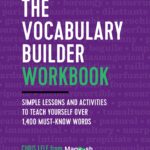In the Critical Reading sections, when you see a “vocabulary in context” question, it is unlikely that the correct answer will be the primary definition—the one that pops into your head at first. Make sure that you are taking cues from the passage.
In line 33, the word “host” most nearly means
- one who has guests
- a huge number
- the target of a parasite
- bread eaten at communion
- a presenter
Without having a passage in front of you, you might be tempted to choose (A), since it is the primary definition. But think again, because it is rarely the case.
Try this short exercise:
I love the people we have encountered in both short and long stays in various US cities. These people are my tribe—we enjoy the same music, food, and authors. But in Scotland, I am naturally encountering people with different experiences from different, but neighboring tribes.
In line 2, the word “tribe” most nearly means
- a group of people from the same Native American background
- a group of people who share the same language
- a group of people from the same family
- a group of people who do not live in a particular town
- a group of people related by experience, custom, and tradition
Again, answer (A) might be appealing because it is perhaps the one that is on the tip of your tongue. But the author has all but defined the word for you: those who “enjoy the same music, food, and authors.” Answer (B) is too limiting. Answer (C) seems to violate the author’s point in the first sentence about encountering different people in different cities. Answer (D) also does not resonate with the definition given either. Answer choice (E) is the best answer.
Try this one:
I described my emotion at playing my first round of golf as “terrified.” My emotion at playing my third round, then, might be described best as “fearful stupefaction.” I could hardly remember a thing about how to swing. Funnily, the results of both rounds were the same. Smartly-dressed golfers in front of me, teed up, swung, and rolled the golf ball about twenty yards to the left. I can do that.
In line 2, the word “stupefaction” most nearly means
- a state of being unable to think clearly
- a state of being shocked or surprised
- a state of being fatigued
- a state of being calmed
- a state of being clear-headed under pressure
In context we know that whatever “stupefaction” is, it is a more extreme version of “terrified” in line 1. This is indicated by the connecting word, “then.” So that excludes (C), (D), and (E). The sentence about forgetting how to swing doesn’t fit with being shocked or surprised, so (A) is the best answer.






Leave a Reply